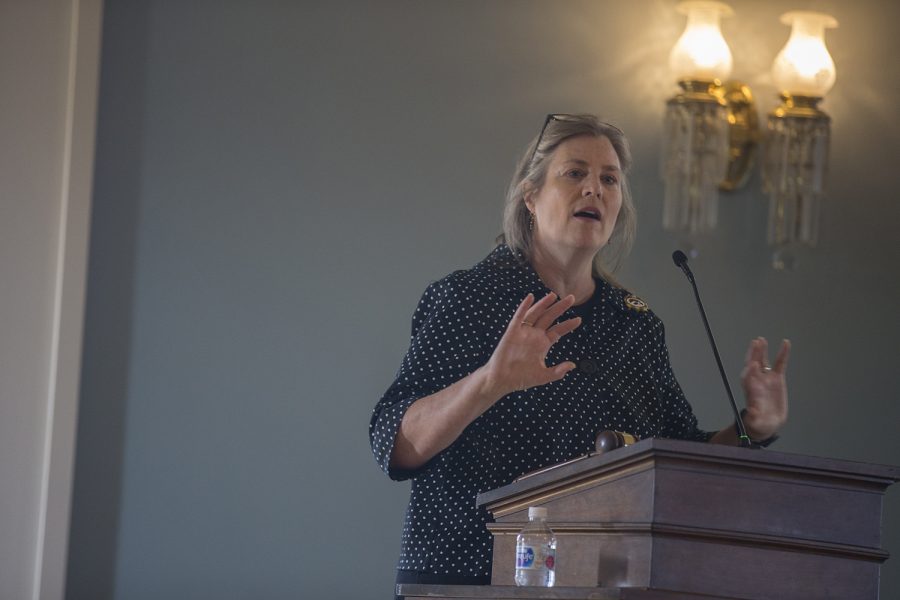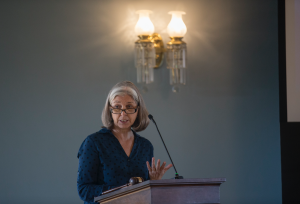UI sexual-misconduct coordinator speaks on priorities for the school year
The UI’s Title IX coordinator outlined the goals of the Office of the Sexual Misconduct Response Coordinator for Faculty Senate.
Sexual Misconduct Response & Title IX Coordinator Monique DiCarlo addresses the audience during the Faculty Senate meeting in the Old Capitol Senate Chamber in Iowa City on Sept. 11, 2018. Faculty Senate members discussed updates on a new online application process to the university, updates on the Office for Sexual Misconduct, and information on the provost search.
September 12, 2018
Monique DiCarlo, the UI’s coordinator of sexual-misconduct response and Title IX, spoke on the role of the Office of the Sexual Misconduct Response Coordinator at the Senate Faculty meeting on Tuesday.
The main focuses of the office are responding to reports of sexual assault, harassment, exploitation, intimidation, dating and domestic violence, stalking, and sex-based discrimination, she said.
Over the last year, there were 444 incidents reported to the UI office, DiCarlo said. Of those, 29 cases were found to have been policy violations, and six reports were discovered to be unfounded.
DiCarlo noted that the office does preventative work as well.
Additionally, she said, the office hopes to increase training for senior Human Resource representatives and associate deans on how to have effective conversations that motivate change in behavior when facilitating an informal sexual-harassment resolution.
“[We work] with supervisors and others to address behavior at a low-level concern before it turns into something that could be a policy violation,” DiCarlo said.
The office’s other priorities for the upcoming year include the expansion and inclusivity of the Women’s Resource & Actions Center’s Certified Peer Educator Program to enhance culturally specific representation and content, particularly for the LGBTQ community, she said.
The office is exploring additional methodologies for assessing the campus climate, DiCarlo said, and reviewing the inclusion of its programming in the Success at Iowa online course.
In April, the UI released the results of its second Speak Out Iowa survey, which assesses the campus climate regarding sexual misconduct, and it also unveiled its updated antiviolence plan. One of the key findings was that LGBTQ-identifying students report higher rates of violence than do their peers who do not identify as such.




